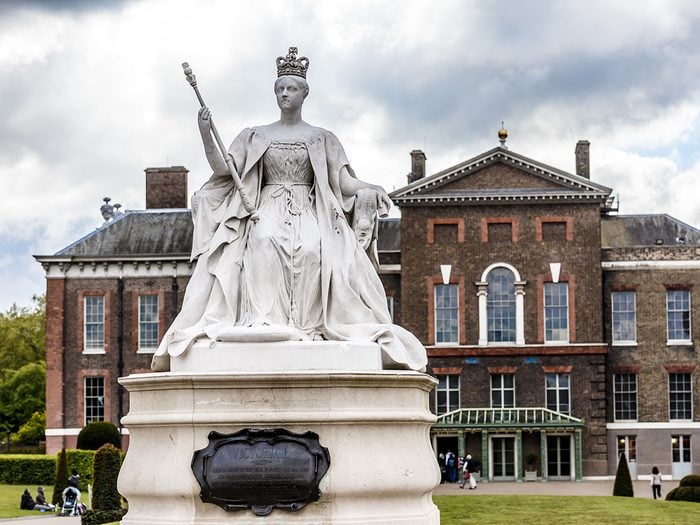
Queen Victoria’s birthplace is now home to William and Kate
Kensington Palace, the current London abode of William and Kate—the Prince and Princess of Wales—was Queen Victoria’s birthplace. Born on May 24, 1819, Victoria spent much of her childhood at Kensington, raised by her widowed mother (Victoria’s father died when she was eight months old) and several royal courtiers.
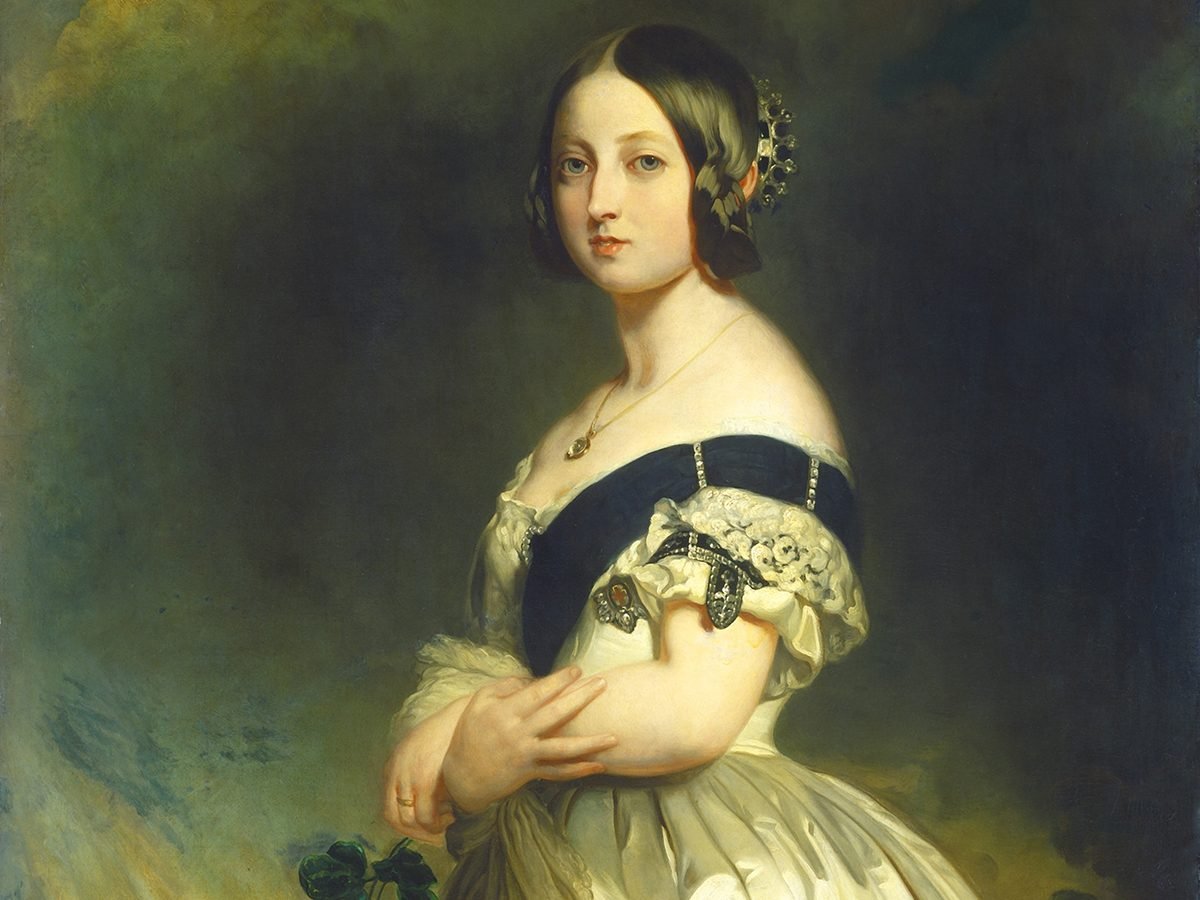
Queen Victoria’s first name wasn’t actually Victoria
Christened Alexandrina (but called Drina as a child), she started using Victoria—her middle name—at 18 when she ascended to the throne.
Take a look back at the most memorable coronations in British history.
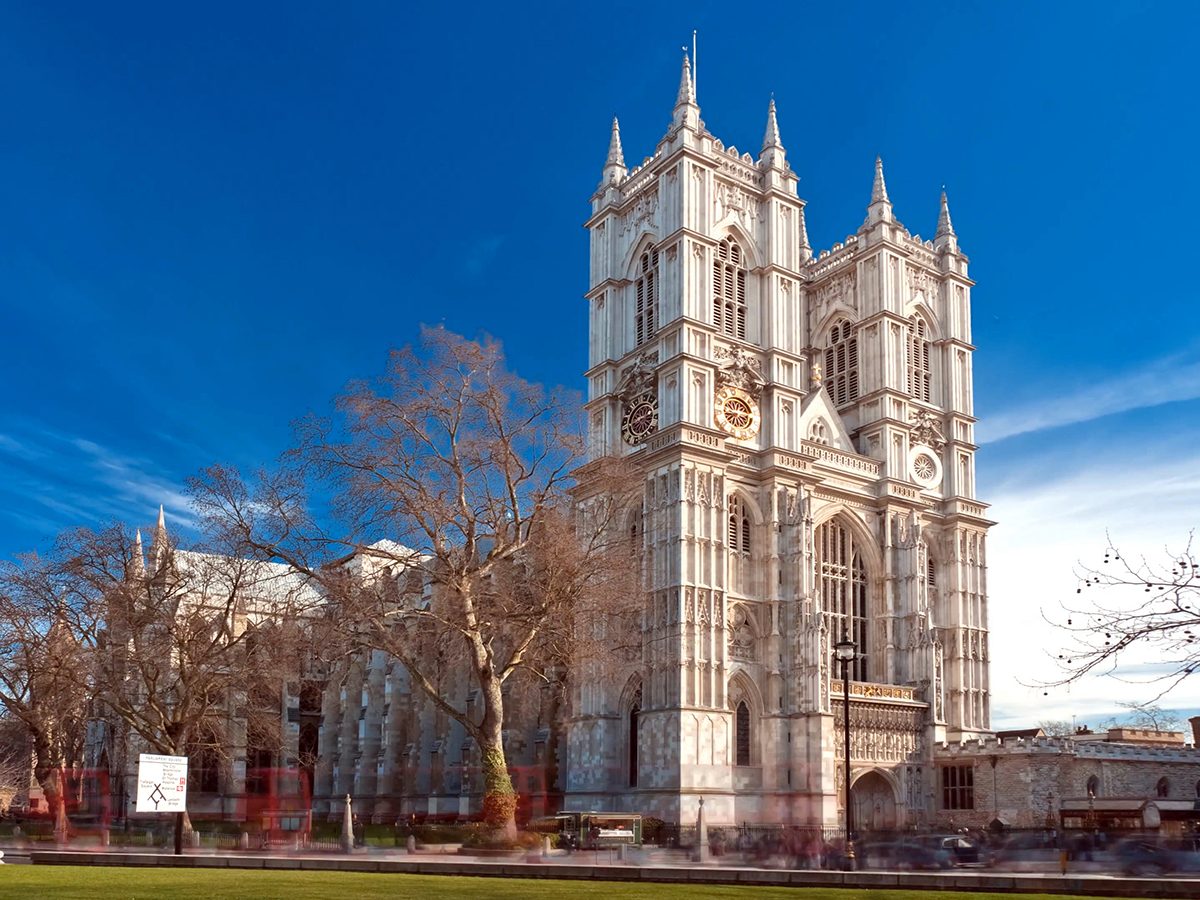
Queen Victoria wasn’t supposed to be queen
Can you imagine Prince Harry as king—even before the scandal of his stepping down from royal duties? Back in 1837, the unthinkable became reality for Victoria. At birth, Victoria was fifth in line to the throne, but the deaths of various princes and a lack of male heirs resulted in the young woman capturing the crown.
The site of Victoria’s coronation—Westminster Abbey (above)—is just one of 50 London attractions worth adding to your bucket list.
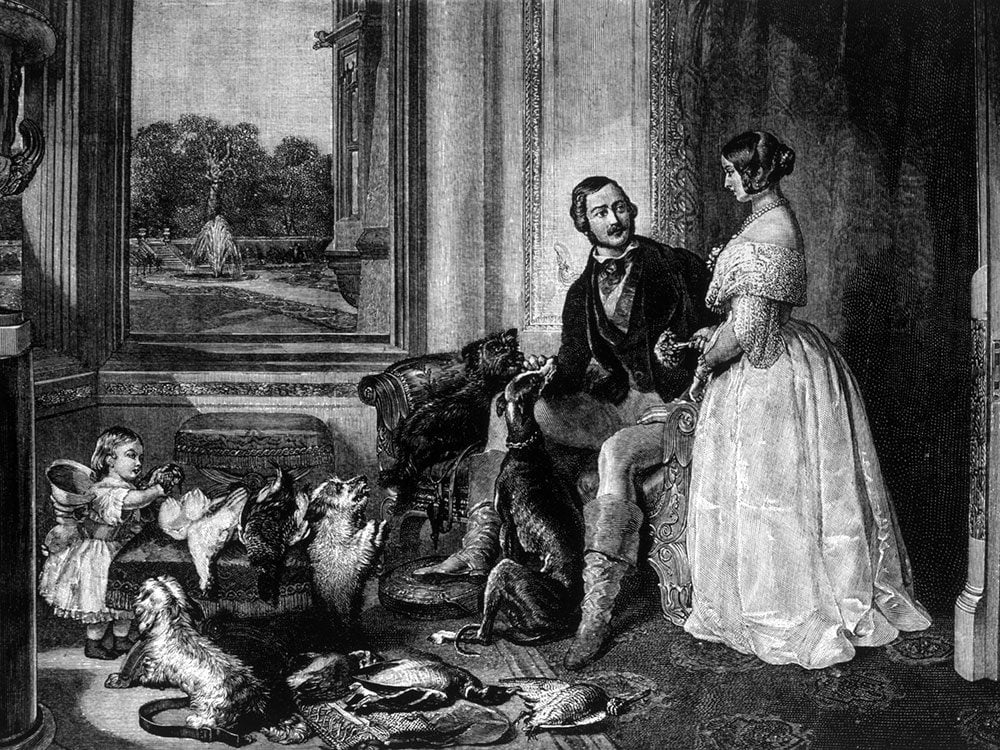
Queen Victoria proposed to her husband
At age 16, Victoria met her future husband, Prince Albert of Saxe-Coburg-Gotha, who also happened to be her first cousin. After four years of friendship and flirtation, Queen Victoria proposed to her prince (actually, she had no choice—according to tradition, a man couldn’t propose to the queen). The smitten couple married in 1840.
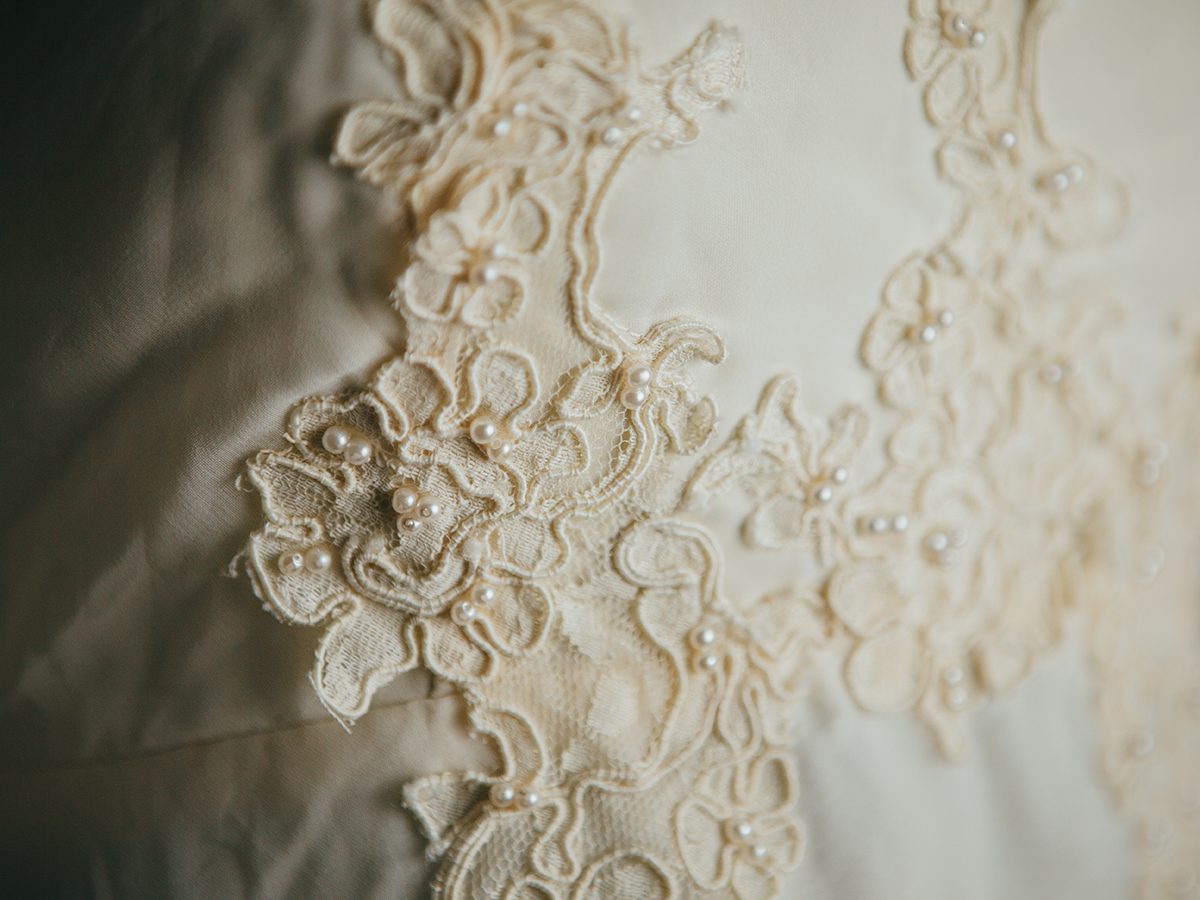
Queen Victoria is the reason wedding dresses are white
The young queen was a wedding trendsetter. In 1840, it wasn’t the norm to see a bride wearing white. The colour was thought to be boring and conservative, but Victoria didn’t care. She chose simplicity over opulence, and her lacy silk-satin grown—crafted from the finest British textiles—gave a much-needed boost to the struggling lace trade. Several years later, a women’s publication stated that white was the “most fitting hue” for brides, and a tradition was born.
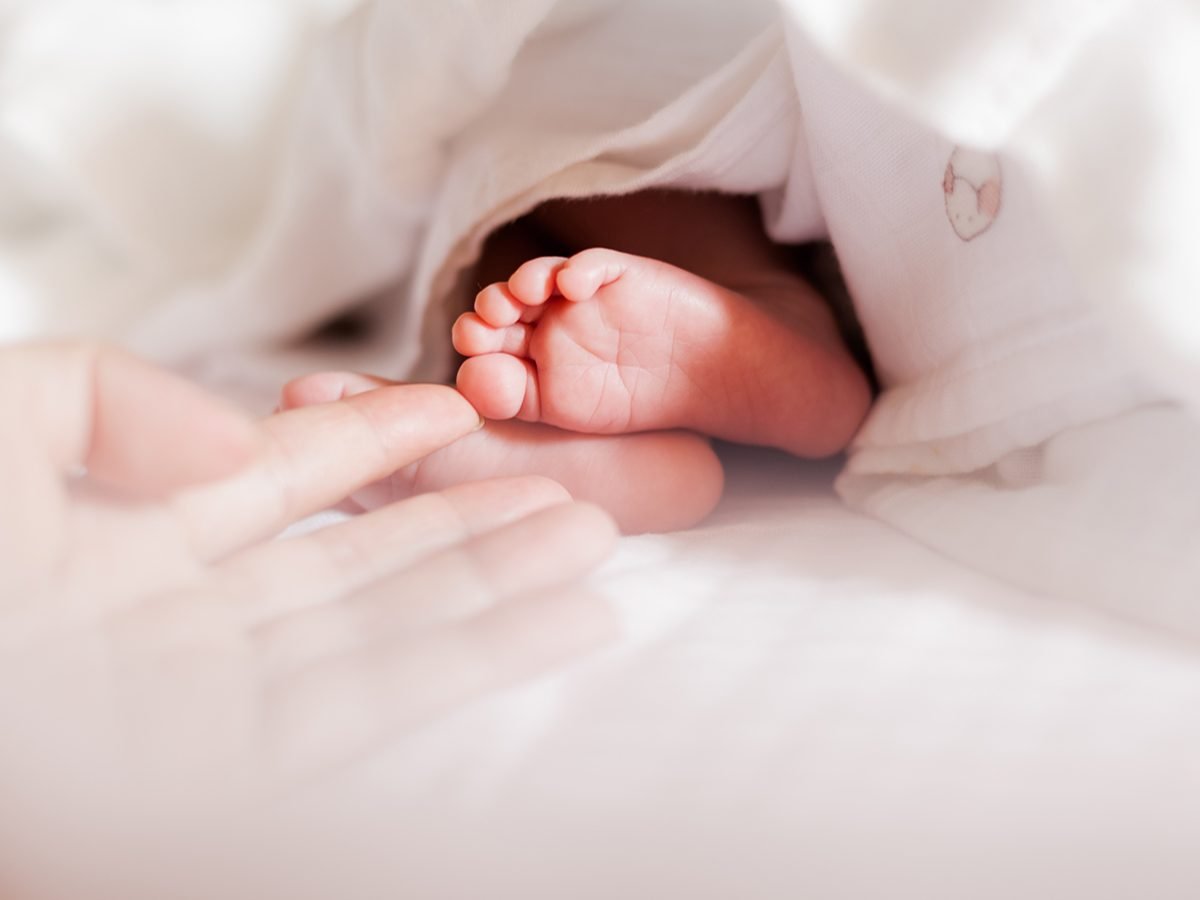
She spent almost two decades pregnant
Victoria and Albert’s first child, Princess Victoria, was born nine months after their wedding. But little Vicky wasn’t an only child for long. A year later, she had a baby brother for company, and within 17 years, the royal household boasted nine children: four boys and five girls.
Get to know Queen Elizabeth’s great-grandchildren.
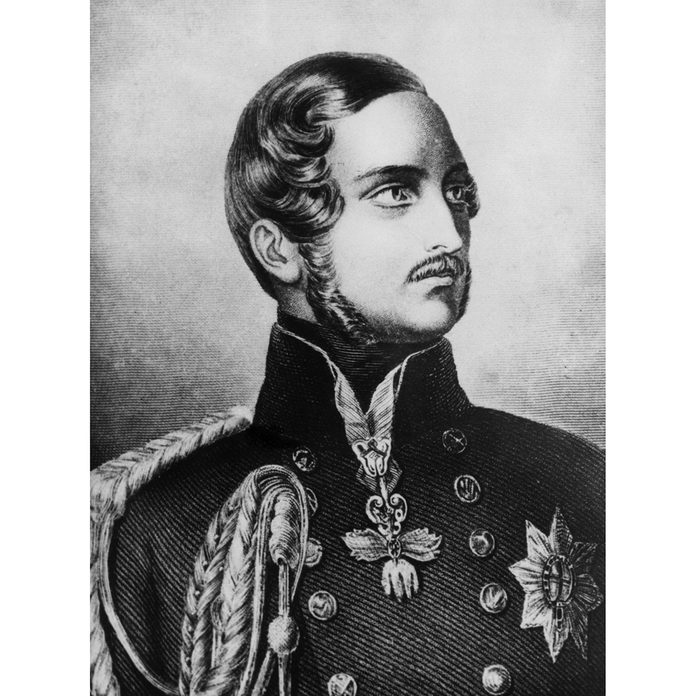
She mourned her husband for 40 years
After 21 years of marriage, Queen Victoria became a widow. In 1861, her beloved Prince Albert died from typhoid. Consumed with grief, Victoria would spend her next 40 years of life wearing only black clothing, and would rarely be seen in public.
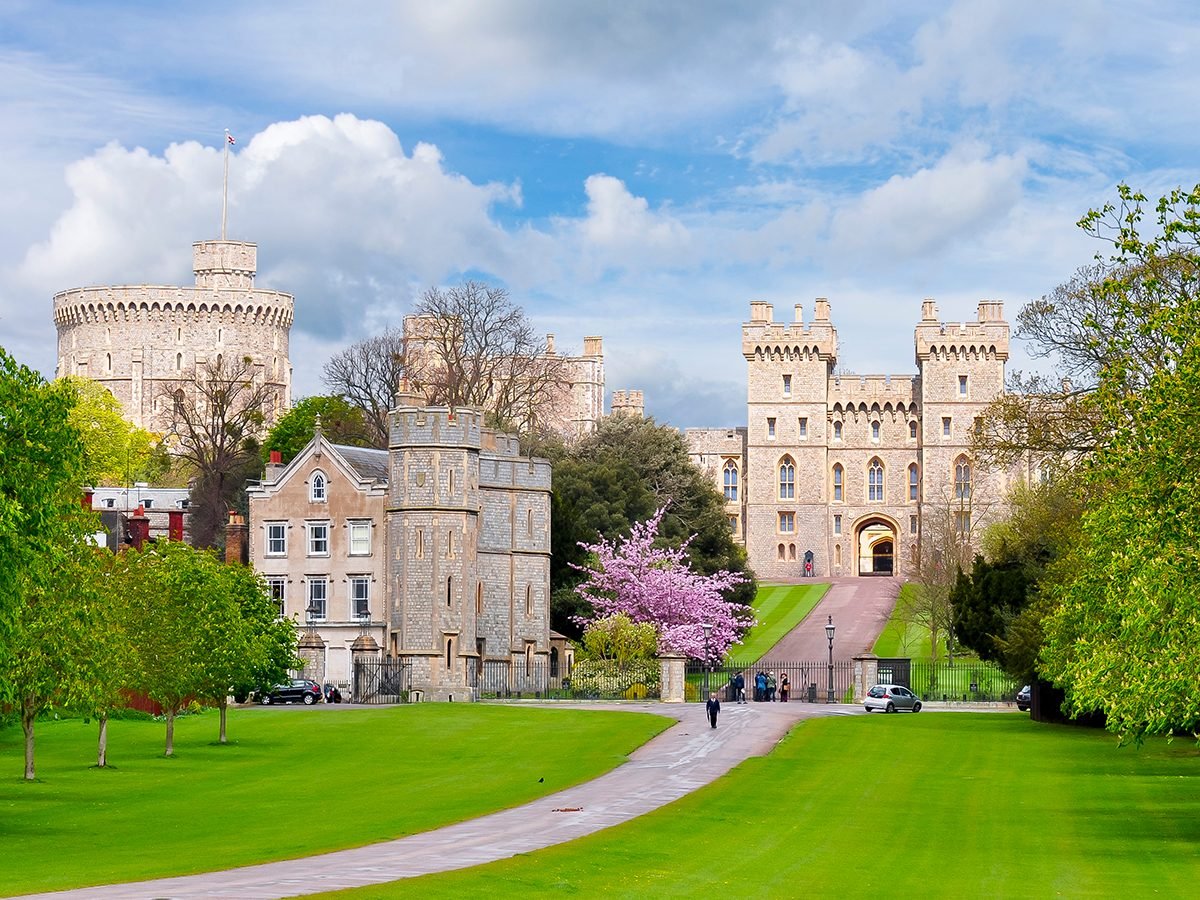
Queen Victoria spoke several languages
If you thought being bilingual made you an overachiever, you’re about to get schooled. Queen Victoria was fluent in no fewer than five languages: English, German, French, Latin, and Italian. She also learned a little Hindustani and Urdu in order to chat with her Indian servants at Windsor Castle (above).
Don’t miss our ultimate guide to royal residences.
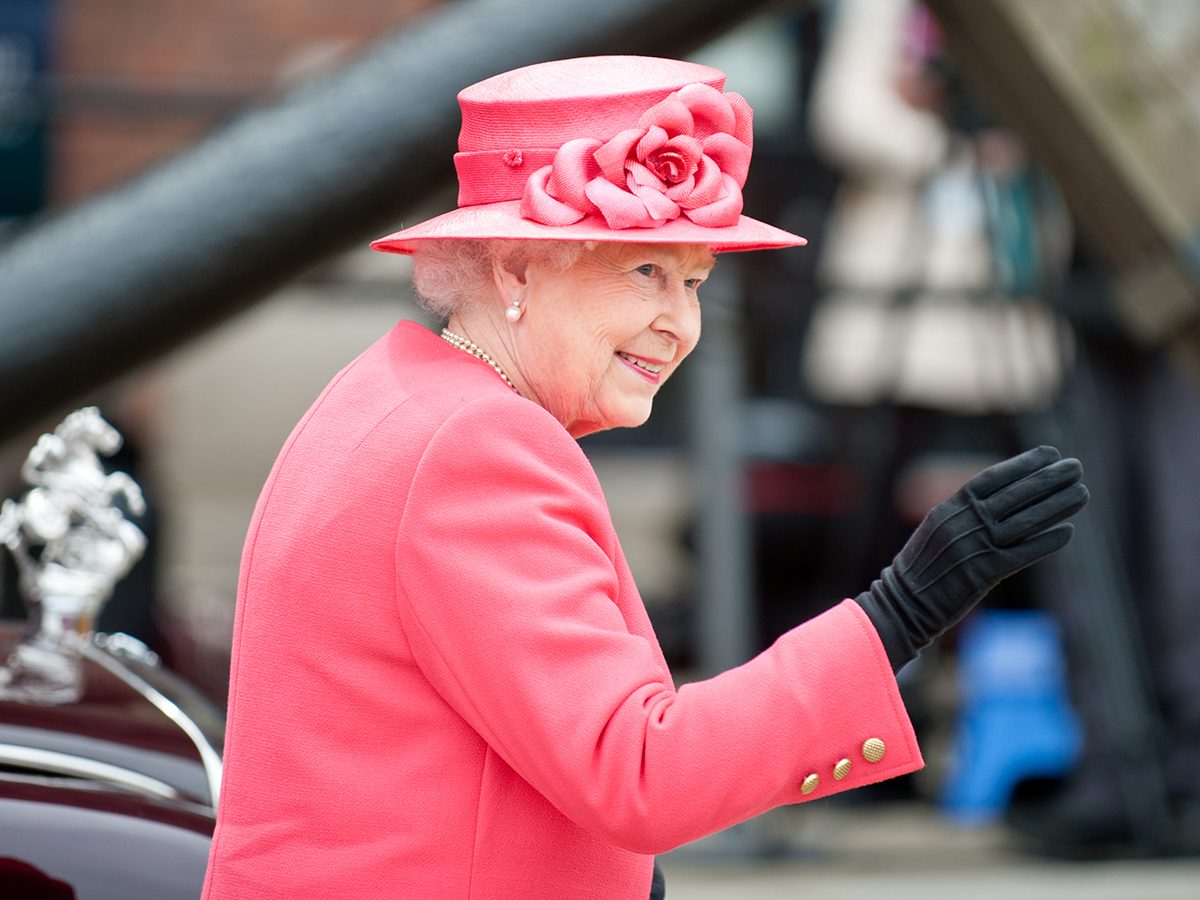
Queen Victoria was the second-longest reigning British monarch
Queen Victoria ruled for 63 years, and up until September 2015, was the longest reigning British monarch. The late Queen Elizabeth II—who celebrated her Platinum Jubilee of 70 years on the throne—now holds the title.
Take a look back at the incredible life of Queen Elizabeth II.
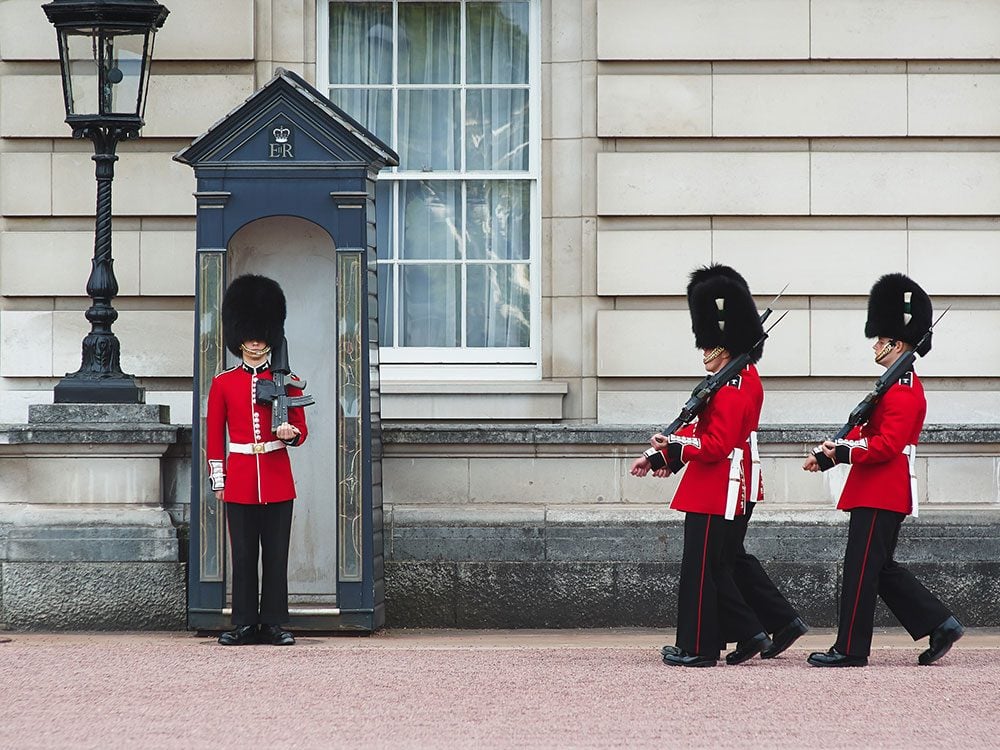
She survived eight assassination attempts
Queen Victoria may have been one of the longest reigning monarchs, but she was also one of the luckiest. On at least eight occasions—most of them while riding in her open carriage—would-be assassins tried to kill her. She also had a stalker. A man by the name of Edward Jones broke into the royal residence at Buckingham Palace several times, and was eventually caught—but not before he sat on her throne and stole her underwear.
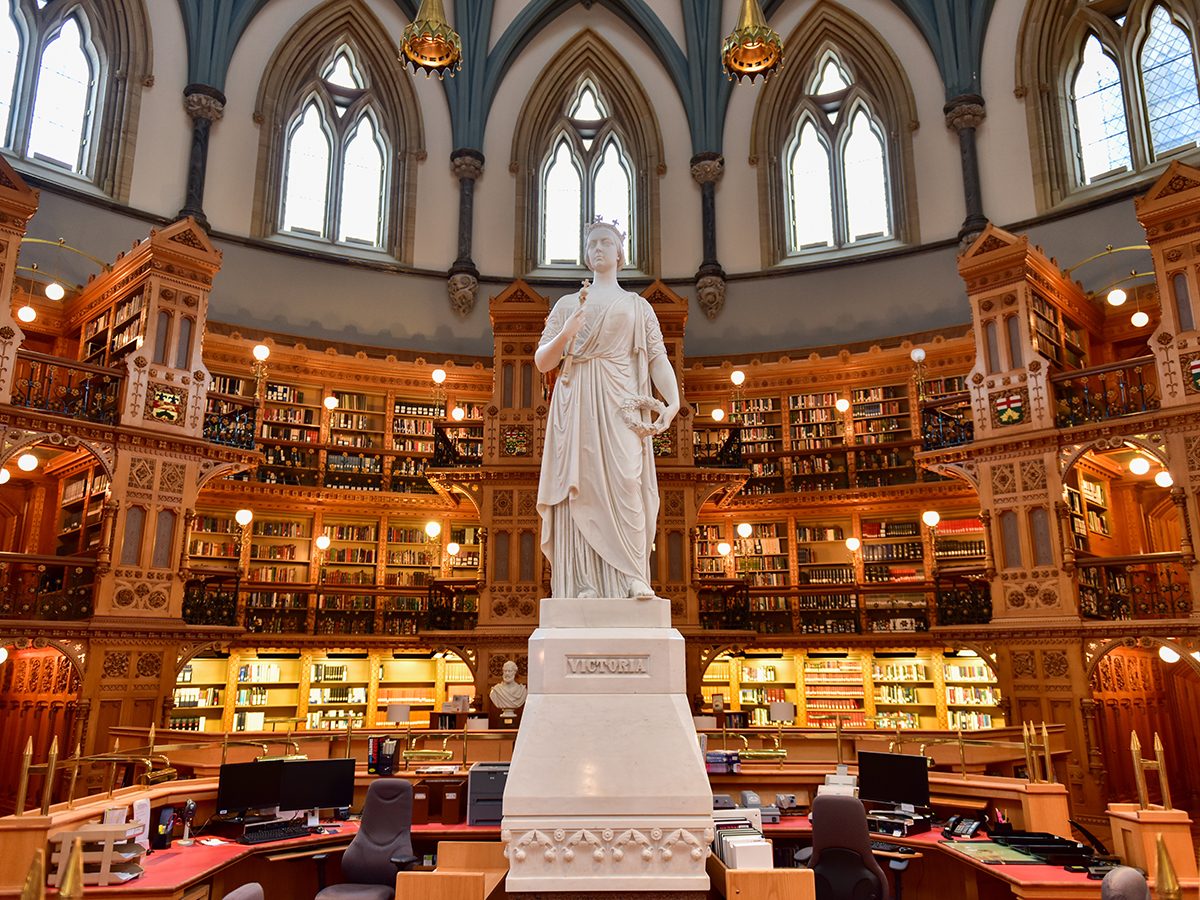
Queen Victoria was Canada’s “Mother of Confederation”
On March 29, 1867, Queen Victoria granted Royal Ascent to the British North America Act (known today as the Constitution Act, 1867)—paving the way for Canada’s unification as a country. The Act would come into effect on July 1, 1867, now known around the world as Canada’s birthday.
Find out how Ottawa became Canada’s capital.
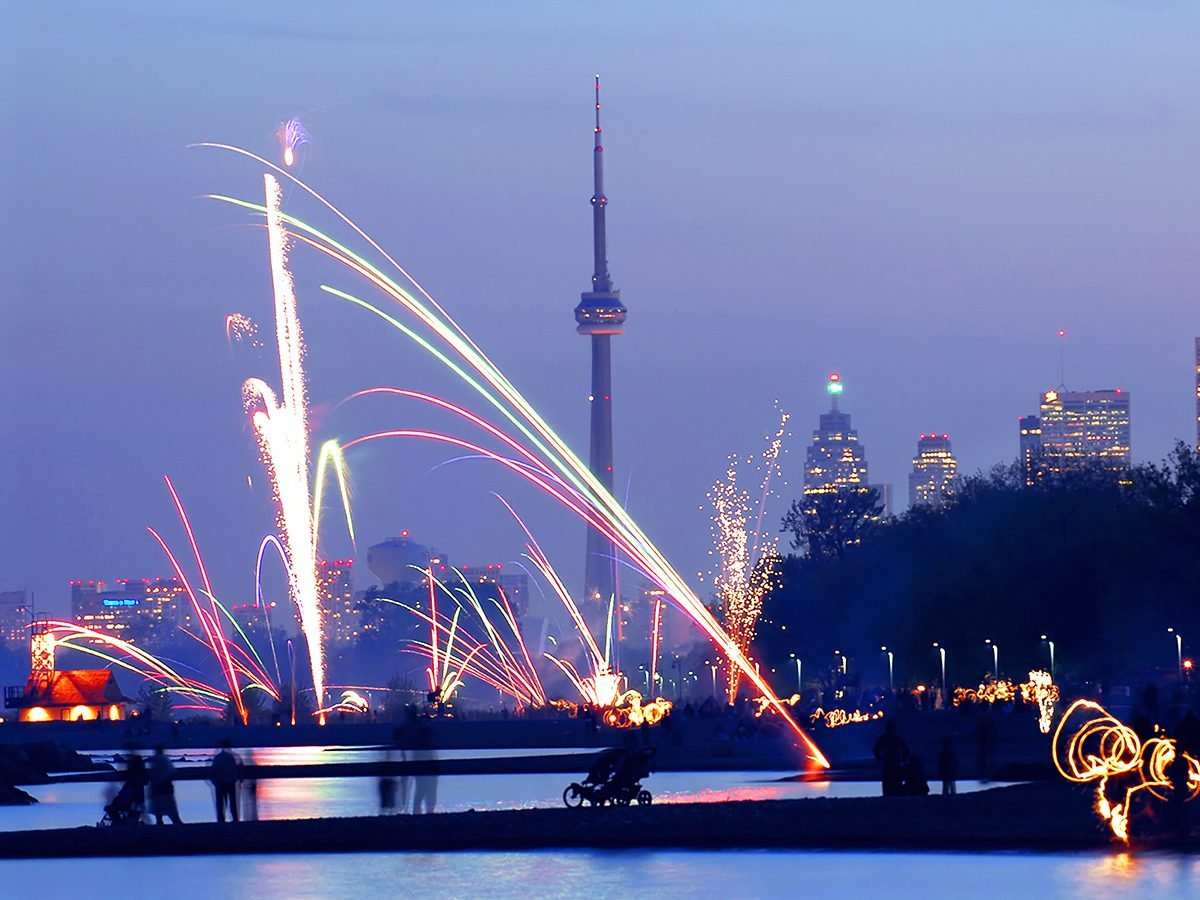
Canada is the only country in the world to commemorate Queen Victoria with a holiday
In 1845, Canadian officials declared Victoria’s birthday, May 24, a national holiday. Today, Victoria Day is observed on the Monday that falls before May 24, which makes it a long weekend in every province west of Quebec.
Check out the 10 most memorable royal tours of Canada.
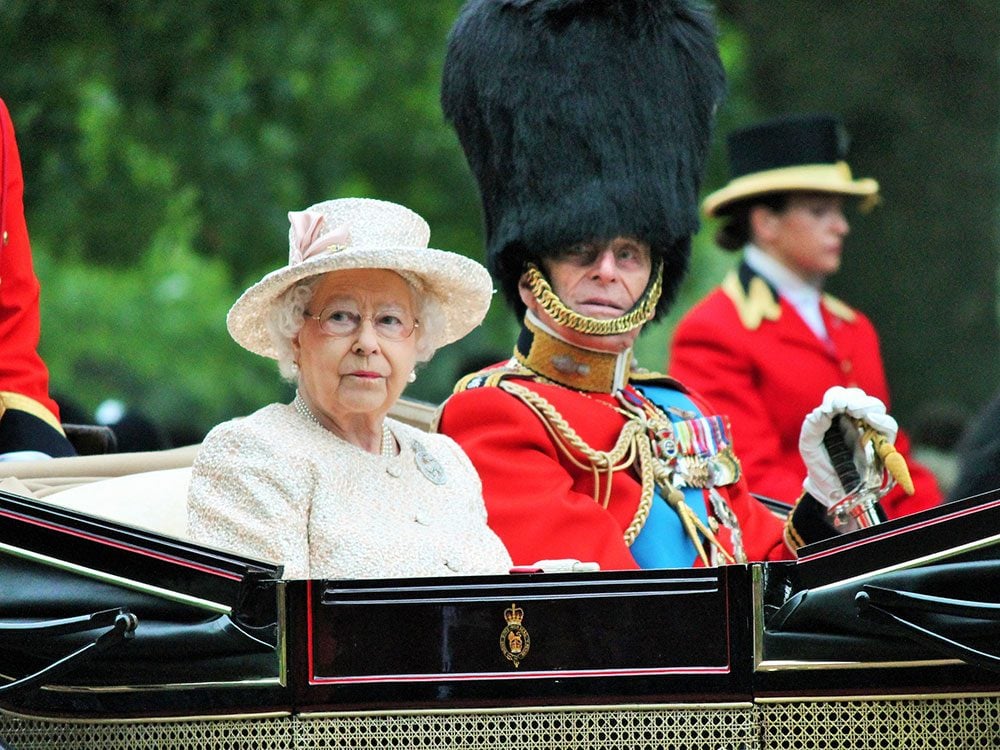
She was related to Queen Elizabeth II… And Prince Philip
Our current monarch, King Charles III, is the great-great-great grandson of Queen Victoria, but the family connections don’t stop there. Both of Charles’s parents, Queen Elizabeth and Prince Philip, were Victoria’s great-great grandchildren, making the late royal couple third cousins. Of course, this means princes William and Harry continue Queen Victoria’s lineage, too: they are her great-great-great-great grandsons.
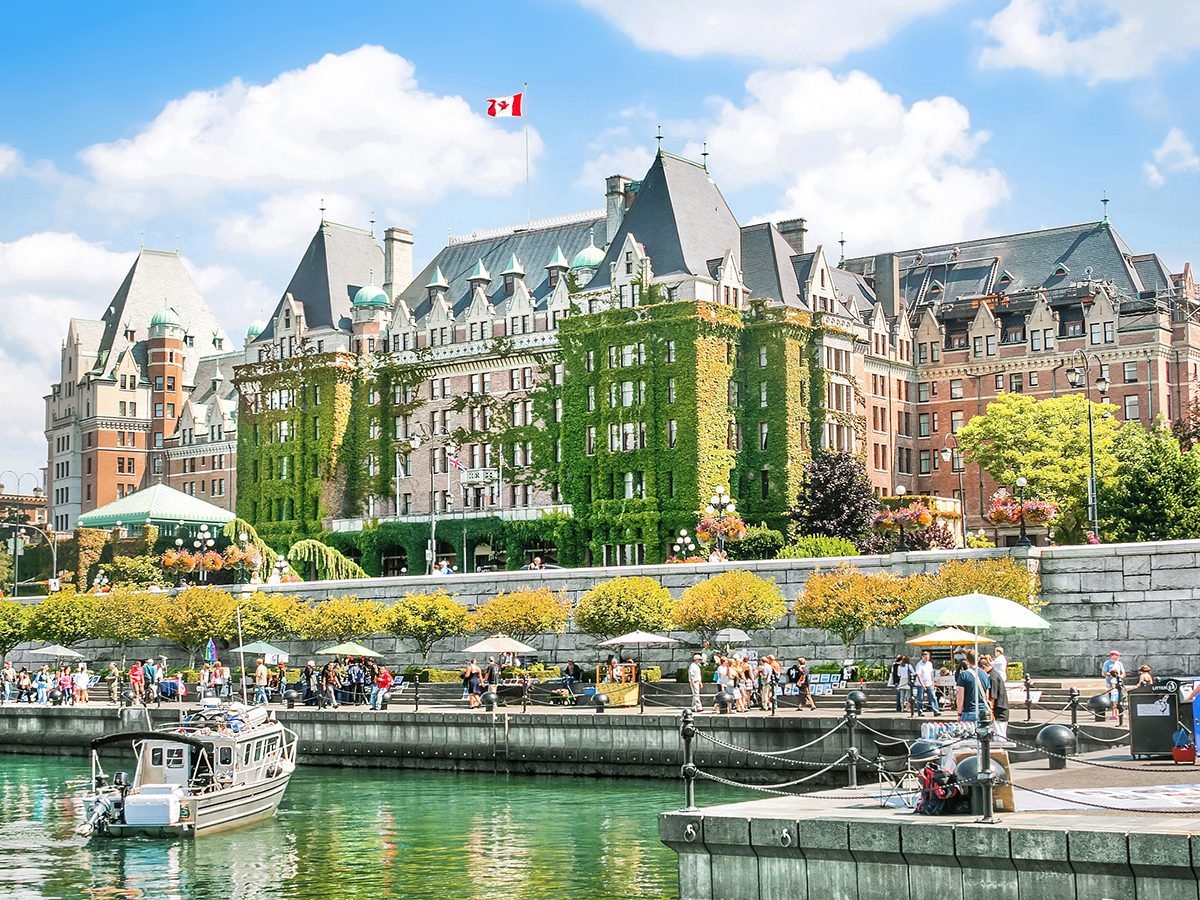
Queen Victoria’s name is connected with more places in Canada than anyone else’s
Schools, parks, counties, roads—everywhere you look in our country, you’ll find variations of her name or royal title. Not one, but two provincial capitals—Regina and Victoria—can thank the Queen for their names, and there are hundreds of Queen streets dotted all around the country. Even her family got in on the name game: the province of Alberta is named after the Queen’s daughter Princess Louise Alberta, and Prince Edward Island was a tribute to Victoria’s late father.
Fun fact: Victoria’s Fairmont Empress is one of many Canadian hotels that have hosted royal guests.
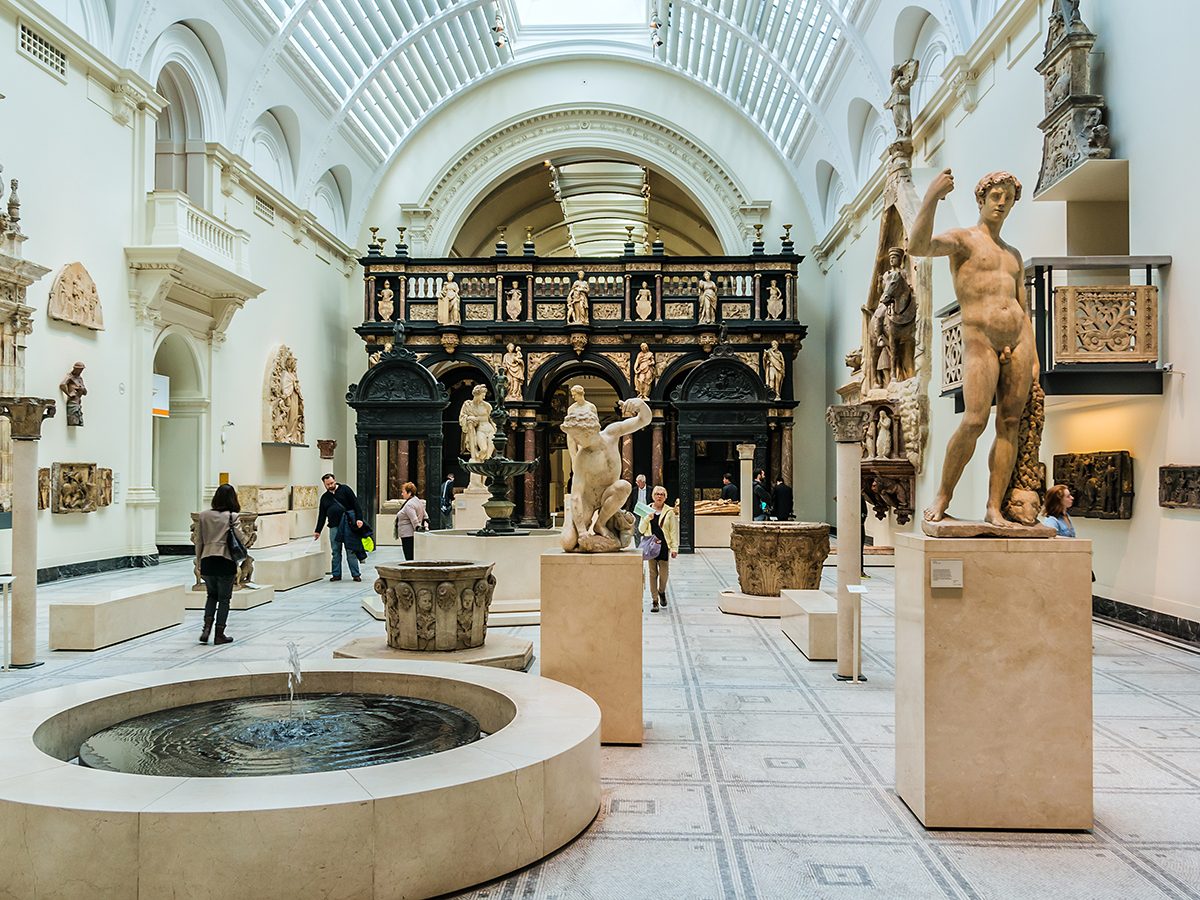
Queen Victoria’s name lives on around the world
Canada doesn’t have a monopoly on dedications to Queen Victoria. The Victoria and Albert Museum in London (above), the states of Queensland and Victoria in Australia, Victoria Peak in Hong Kong, Victoria Falls in Zambia and Zimbabwe and Lake Victoria in Kenya all owe their names to the monarch. Many of the Queen and Victoria streets you encounter on your travels around the globe are also part of the royal’s enduring legacy.
Discover the secrets of the Royal Yacht Britannia.
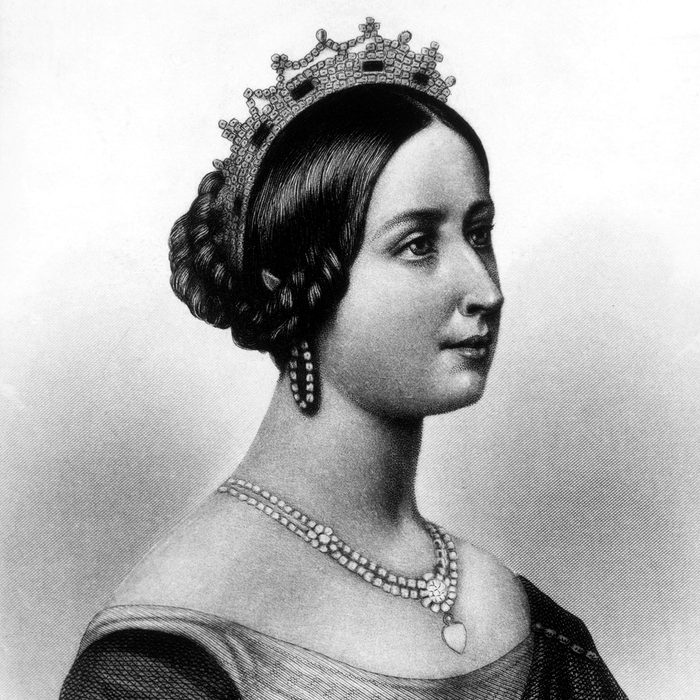
Queen Victoria was an artist and writer
Painting, drawing, and writing were among the many artistic passions that Victoria pursued throughout her lifetime. She filled notebooks with sketches and illustrations of family members and places of interest, and accumulated 120 handwritten diaries.
Check out the most scandalous royal memoirs ever published.
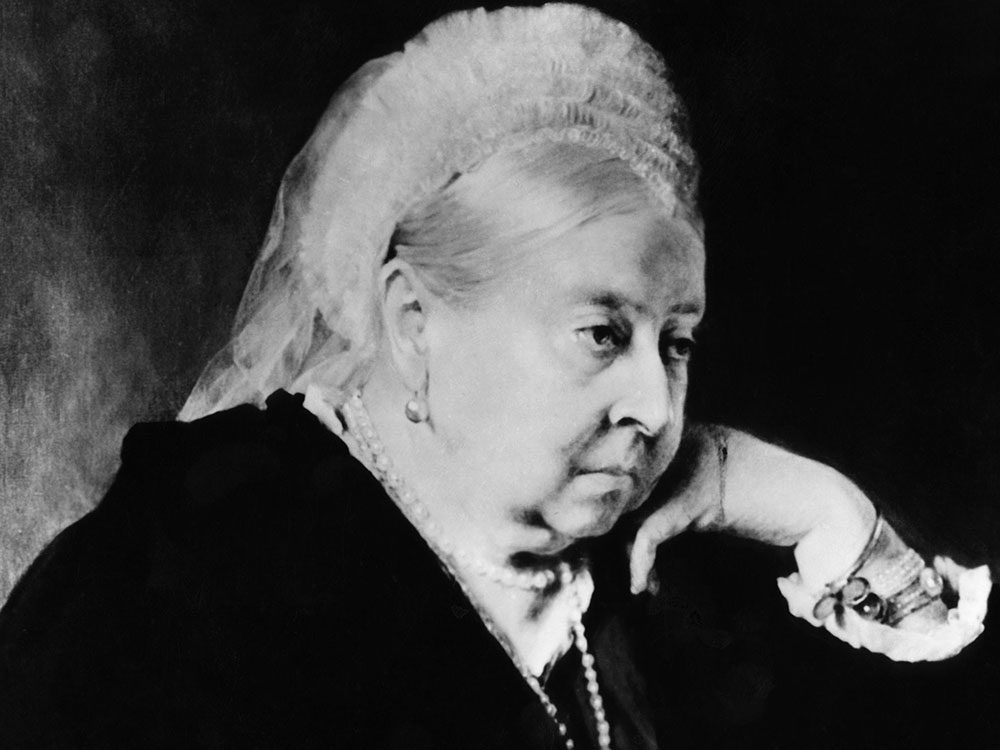
Queen Victoria’s gift to the White House is still in use
What do American president Joe Biden and Queen Victoria have in common? A sturdy oak desk. In 1880, Victoria gave U.S. president, Rutherford Hayes a unique gift—a desk crafted from the timbers of a retired British ship, the H.M.S. Resolute. Since its arrival at the White House, the Resolute desk has helped many American presidents including John F. Kennedy, Bill Clinton, and Barack Obama get the job done.
Here are 10 history podcasts worth adding to your playlist.
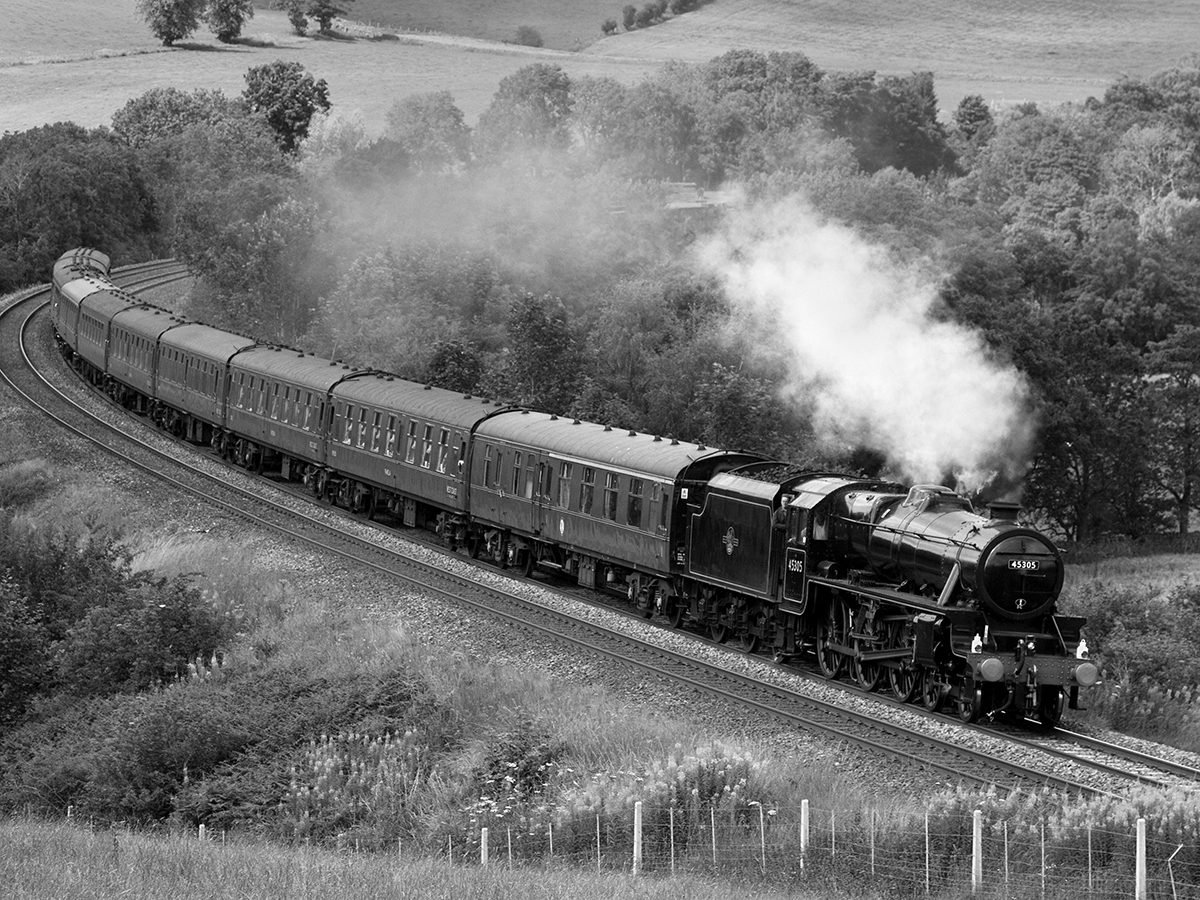
She saw many technological firsts
The “Victorian era” may sound like ancient history, but Queen Victoria lived into the twentieth century, dying at the age of 81 in 1901. She was the first British monarch to travel on a train, use electric lights and a telephone.
Put your knowledge of the past to the test with these tricky history questions.
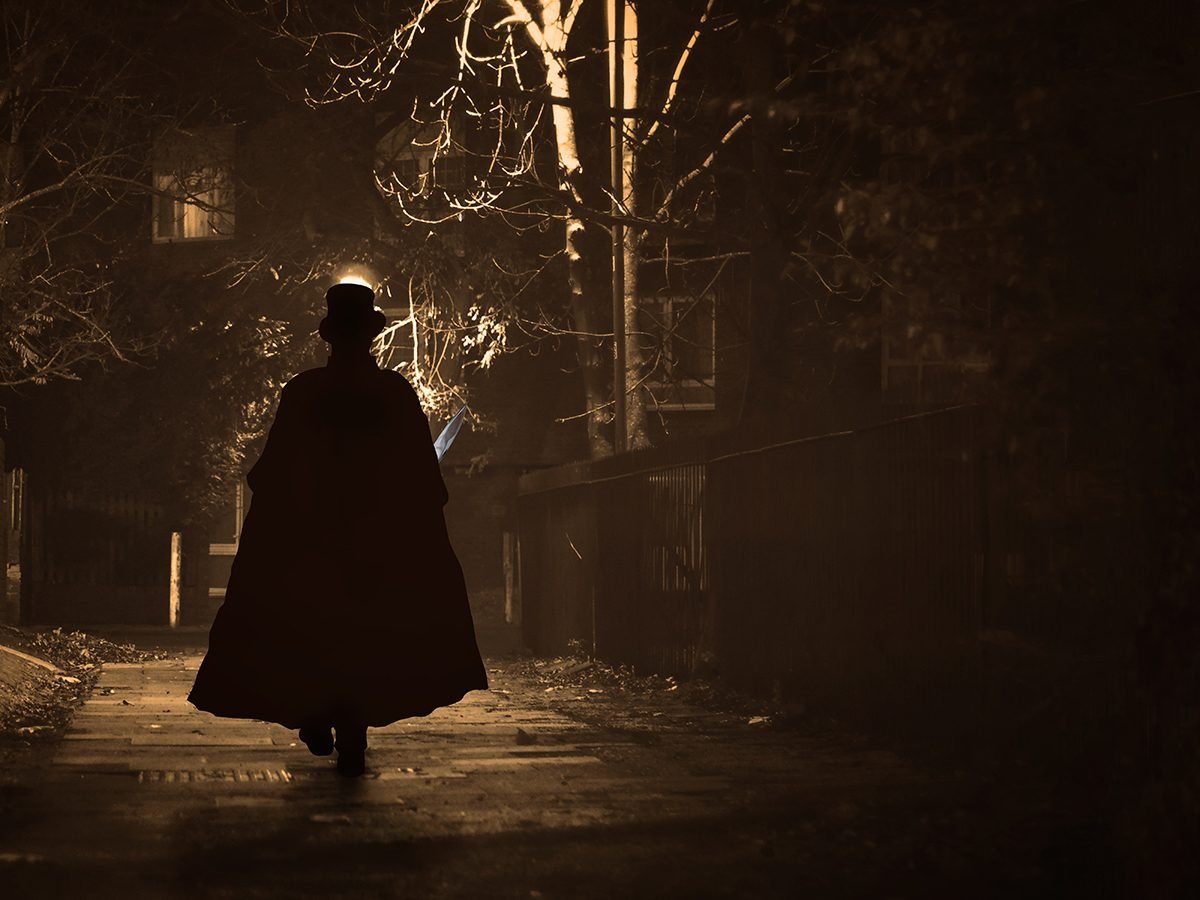
Some theorists suspect that Queen Victoria’s grandson was Jack the Ripper
In 1970, a British physician named Thomas Stowell wrote an article speculating that Queen Victoria’s grandson, Prince Albert Victor, was in fact Jack the Ripper—the legendary serial killer who terrorized London and brutally murdered five women in 1888. Many historians have since discounted the physician’s theories, citing a lack of convincing evidence.
Check out Canada’s most chilling unsolved mysteries.
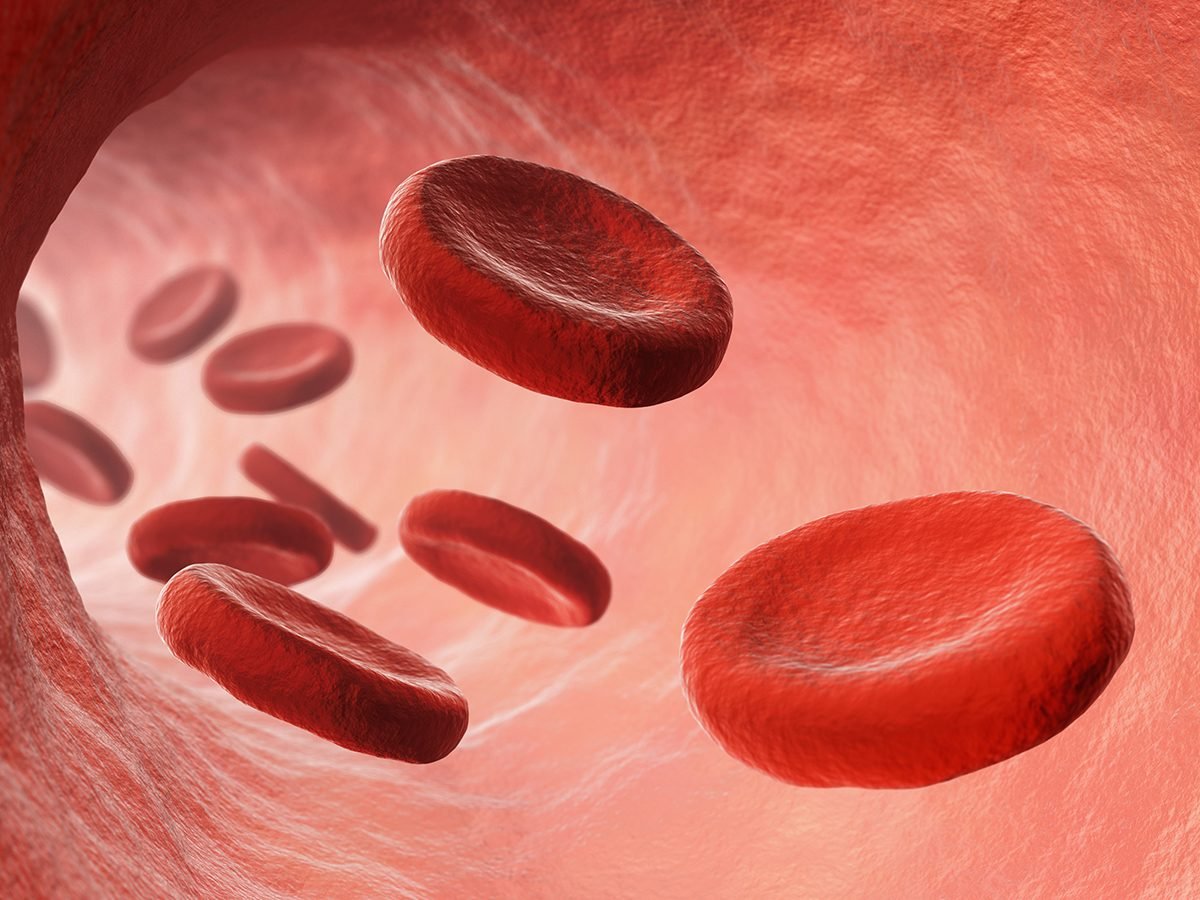
She was a carrier of hemophilia
Queen Victoria carried a gene mutation for hemophilia, a rare disorder in which blood doesn’t clot as it normally should, leading sufferers to bleed excessively from even the smallest of cuts. The Queen passed on the disease to three of her children, including son Leopold, who at age 30, haemorrhaged to death after a fall.
How extensive is your royal vocabulary? Take our Word Power challenge and test your knowledge of royal terms.
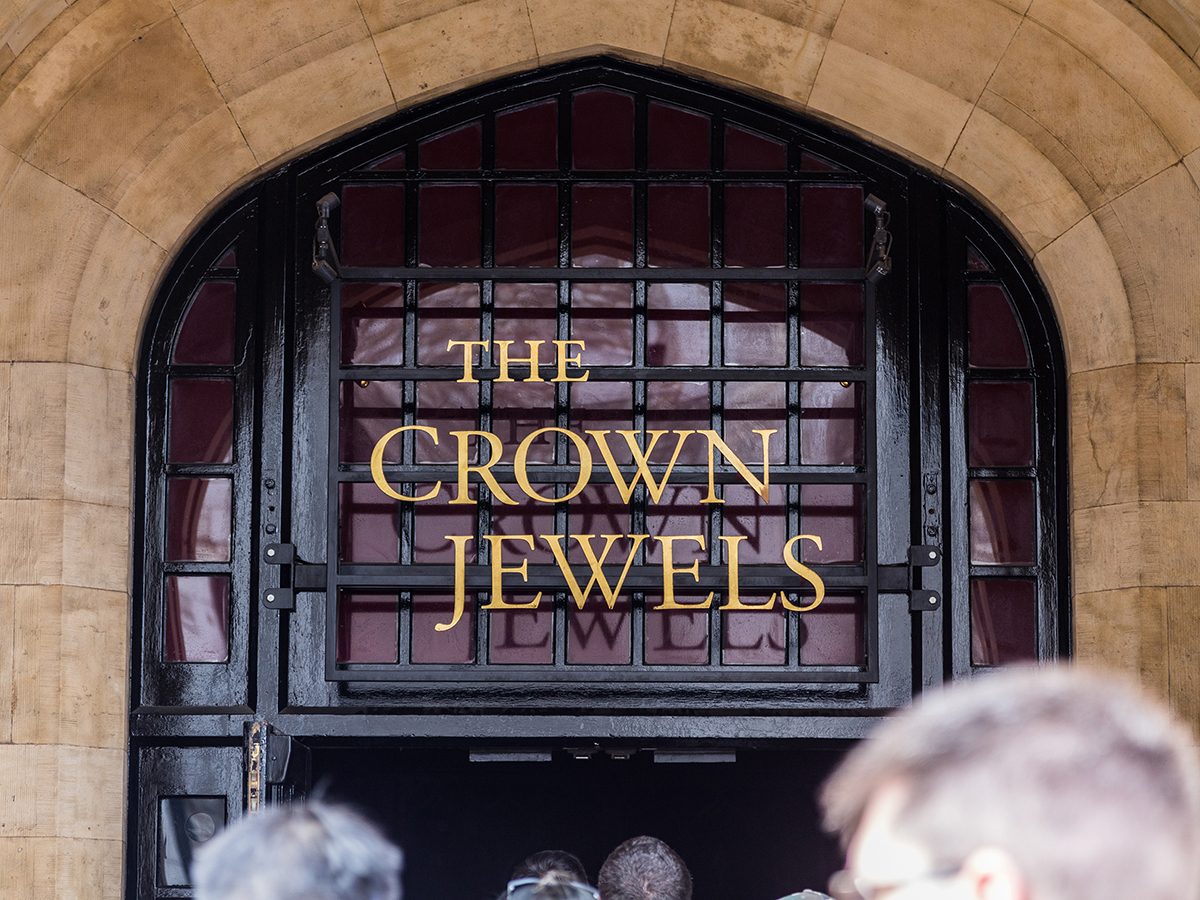
Queen Victoria’s coronet is one of Britain’s most impressive crown jewels
Diamonds—and sapphires—are a girl’s best friend. Or at least that’s what Prince Albert figured when he commissioned a coronet to present to Victoria as a gift after two years of marriage. Easily one of the most beautiful pieces of jewelry in the royal collection, the stunning tiara boasts countless diamonds and no fewer than 11 sapphires.
Here’s how much the British crown jewels are actually worth.
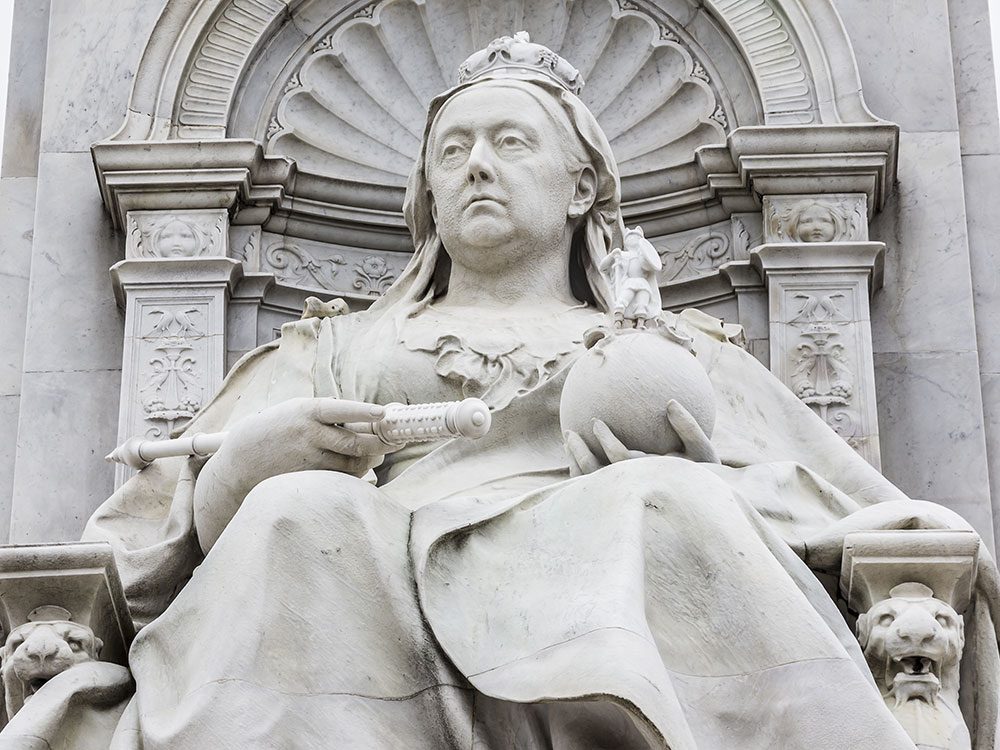
She had a real impact on British society—and the world
Queen Victoria helped prevent a Franco-German war in 1875, and saw the British Empire stretch round the globe. On the home front, she championed acts that made it possible for more people to vote, as well as legislation that increased wages for the working class. She was also responsible for restoring the royal family’s public role, giving her patronage to more than 150 institutions, including the armed forces, museums, and educational organizations. Queen Victoria and Prince Albert redefined what it meant to be royal, and their charitable legacy lives on in the works of King Charles and Prince William.
Take a look back at King Charles’s most memorable visits to Canada.
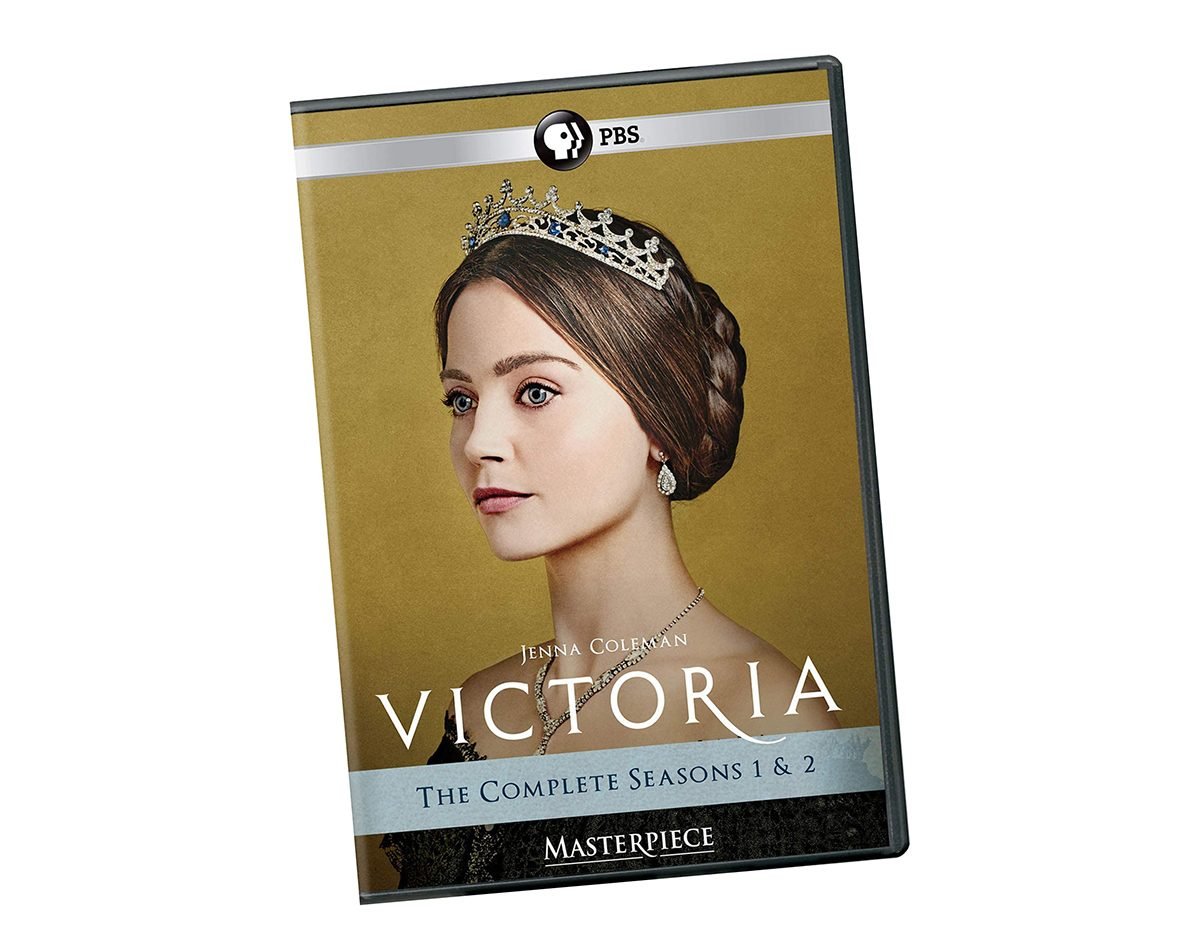
The ITV/PBS Victoria mini-series isn’t 100% accurate
Did an 18-year-old Victoria really propose to a swoon-worthy Prime Minister Lord Melbourne? Did scheming stewards actually make an attempt to disrupt a royal ball? Although these tales certainly made for entertaining television in the ITV/PBS production of Victoria, they’re likely more fiction than fact. Historians have pointed out that Lord Melbourne would have been 60 years old, overweight, and likely much more of a father figure than a potential love interest for the young queen.
Explore the fascinating history of Highclere, the real-life Downton Abbey castle.
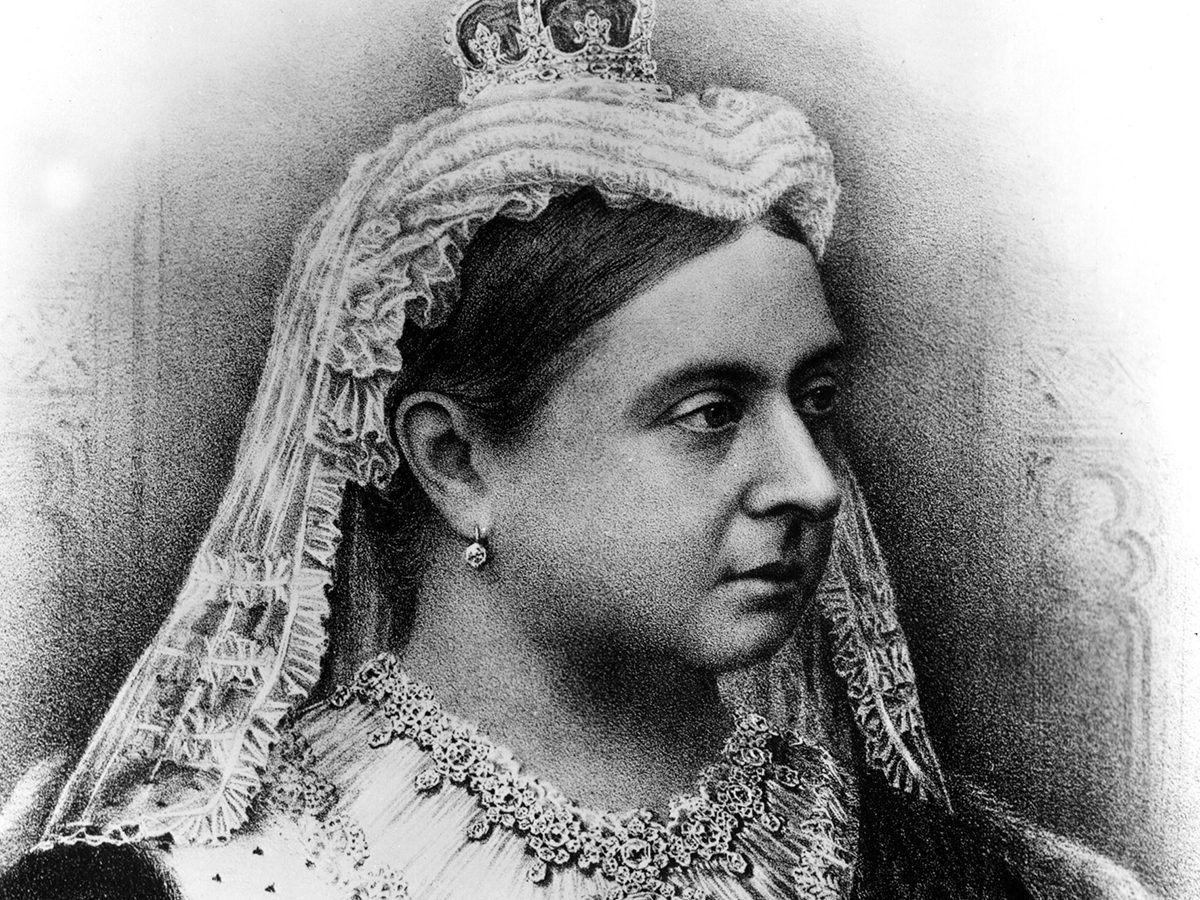
She may never have said, “We are not amused”
Although modern-day depictions of Queen Victoria would have you believe she was dour—likely due to the fact that her reign was a period of strict conservative values—she herself denied ever having used the phrase, “We are not amused.”
Now that you know these fascinating Queen Victoria facts, take a look back at Queen Elizabeth’s life in 30 quotes.